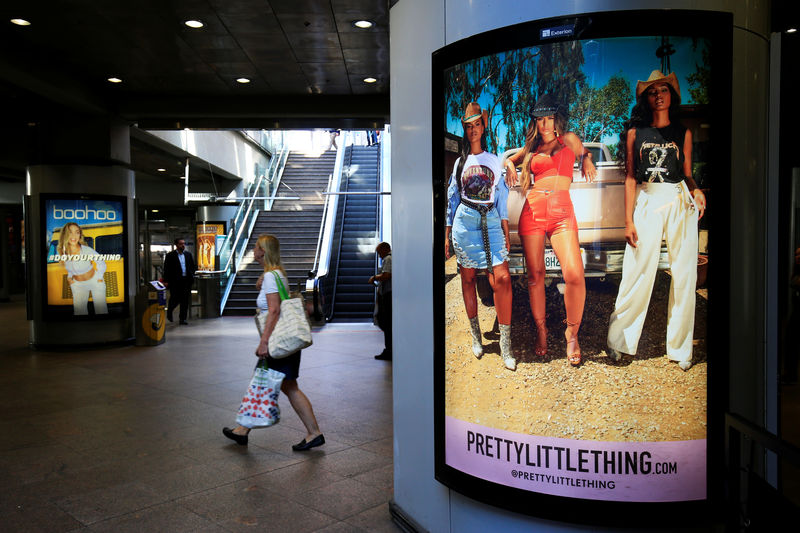By Geoffrey Smith
Investing.com -- How much damage have the revelations about Boohoo .com’s supply chain done?
Only last week, it appeared that nothing could stop the U.K.-based fast fashion house. Its stock had risen by over one-third in the first half of the year in the belief that its online-only distribution model and strong balance sheet positioned it perfectly for the post-pandemic world. After seizing the moment to raise 200 million pounds in fresh capital, it was ready, willing and able to go out and add to its brand portfolio by sweeping up rivals who had succumbed to the recession on the high street.
Then the Sunday Times dropped the bombshell about conditions in a Leicester factory that was part of its supply chain. The report exposed how vulnerable workers, overwhelmingly with South Asian origins, were packed into ill-ventilated workshops and forced to work for as little as half the national legal minimum. The stock gave up all of its 2020 gains in three days.
The response to the revelations says a lot about how Covid-19 has changed perceptions of governance risk. Investors have turned a blind eye to lax enforcement of conditions in the industry’s supply chain for years, fully aware that business goes where labor is cheapest, especially where the budget end of the market – Boohoo’s niche - is concerned.
But the calculation is transformed when it becomes clear that the conditions required for profitability (and Boohoo’s margins are some of the best in the business) are also perfect for spreading the coronavirus and economic disaster.
Labour Behind the Label, a pressure group that campaigns for workers' right, said last week it had received reports of "workers being forced to come into work while sick with COVID-19, workers wishing to isolate being denied pay, (and) factories operating illegally throughout lockdown.”
While there’s no proven link between the practices outlined in the Sunday Times report and the local outbreak of Covid-19 that forced the government to exclude Leicester from the broad lifting of lockdown restrictions last weekend, it’s clear that such a link can’t be ruled out.
Boohoo has since said that the company documented in the report wasn’t on its official list of suppliers – a claim that’s impossible to verify externally as Boohoo never published that list. It’s also said it will spend 10 million pounds on a review of how its clothes are made.
It does, at least, appear to have convinced its biggest investors that it can ride this one out. Jupiter Fund Management, its largest independent shareholder, has now raised its stake to over 10% from 9.6% last week. By contrast, much of the selling, it can be assumed, was triggered by stop loss orders placed by the retail investors with shorter-term investment horizons who had jumped onto a rare ‘safe bet’ in the past three months.
Boohoo (LON:BOOH) shares were up 27% by mid-morning in London but were still below where they started the year.
Whatever the outcome of Boohoo’s investigation, it would appear likely that the company will have to spend more on at least monitoring its supply chain in the future, even though the role of its Leicester factories is set to shrink as it broadens its portfolio through acquisitions.
But the conditions that previously only directly affected the unfortunates in the factories now have a clear, if indirect, impact on the lives and livelihoods of thousands of others. As long as law enforcement can’t afford to look away, neither can investors.
